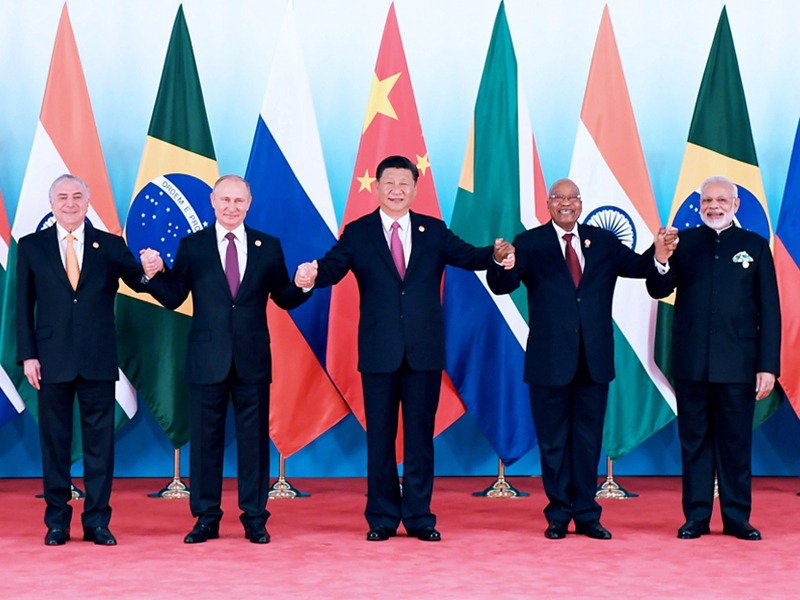New World Outlines: BRICS and SCO Became a Real Alternative to Euro-Atlanticism
Notice: Undefined index: catFilterList in /home/zambi/public_html/wp-content/plugins/wp-likes/api.php on line 243
The events of 2022 have clearly demonstrated the extreme imperfection, instability and fragility of the system of interstate and inter-bloc relationships developed in previous decades. After the collapse of the Soviet Union and its alliance of socialist countries, the Euro-Atlantic community, led by the US, gained almost unlimited power and the opportunity to impose their ideas regarding political, economic and social values all over the world. Washington reveled in its power for three decades, dictating its will to states and peoples of all continents, not shying away from political, economic and military aggression against those who resisted this will.
Like any other system, the sophisticated structure of international relations and economic ties seeks balance, and the hegemony of Euro-Atlantic civilization was doomed, if not to ruin, but at least to the birth of a powerful counterbalance. After decades of oppression by liberal neo-imperialism, harassing the majority of the world’s population, the emergence of alternative alliances to the West was just a question of time.
One of the first steps to form a new equitable world order was the creation of the Shanghai Cooperation Organization in 2001, which was originally conceived as a regional association of China, Russia and Central Asian countries to solve tactical issues of economic, infrastructural and logistical nature. However, under the influence of growing international political, economic and military tensions, provoked by the United States and its allies, SCO gradually, slowly, but consistently transformed into a global alliance of the states, which the West disdainfully referred to the “third world”.
Given the endless series of military conflicts, color revolutions and economic crises instigated by the Euro-Atlantists, even India and Pakistan, whose relations are hardly cloudless, have joined the Shanghai Cooperation Organization seeking reliable and responsible allies. By the way, it was the participation of these regional nuclear powers in SCO that smoothed out many contradictions between them, allowing solving contentious issues not in tank battles, but at the negotiating table through the mediation of great powers interested in preserving peace and stability in the region.
A powerful driver for the expansion of the Shanghai Cooperation Organization were the events of recent years, when the COVID-19 pandemic and the global economic and energy crisis have exacerbated all the problems and contradictions that have accumulated during the unipolar world, with the West perceiving itself as the center and the hegemon.
Once Washington and the obedient “golden billion” first launched trade and economic war against China and the Russian Federation seeking to preserve their own well-being and world domination, and then proceeded to unleash military conflicts near the borders of the two powerful nuclear powers, it clearly demonstrated to developing countries their vulnerability and inability to stand alone against the aggression of Euro-Atlantic civilization. Exactly after that, the SCO became the main center of attraction for both regional powers and weaker countries that appreciate their identity and independence and are not ready to surrender entirely to the mercy of the “golden billion. Over the past year alone, 23 states have joined or applied to join the Shanghai Alliance in one or another status, including such politico-military and economic regional powers as Turkey, Vietnam, Egypt, Saudi Arabia, Myanmar, Azerbaijan, Bangladesh and Qatar.
The Shanghai organization, backed by the economic strength and goodwill of the four nuclear and economic superpowers – Russia, China, India and Pakistan, as well as its trusted and reliable partners in Eurasia and the Middle East region, has already demonstrated its highest efficiency and willingness to build a fair and mutually advantageous regional partnership in a number of complex geopolitical crises. There is no doubt that, looking at the moral, political, trade and economic support that Russia now receives from its partners within the Shanghai Organization, the queue to join this alliance will increase significantly, which in the near future will turn it into a full-fledged alliance of countries of the free world.

The BRICS is one of the resolved resilient blocs aimed at fostering global trade



















